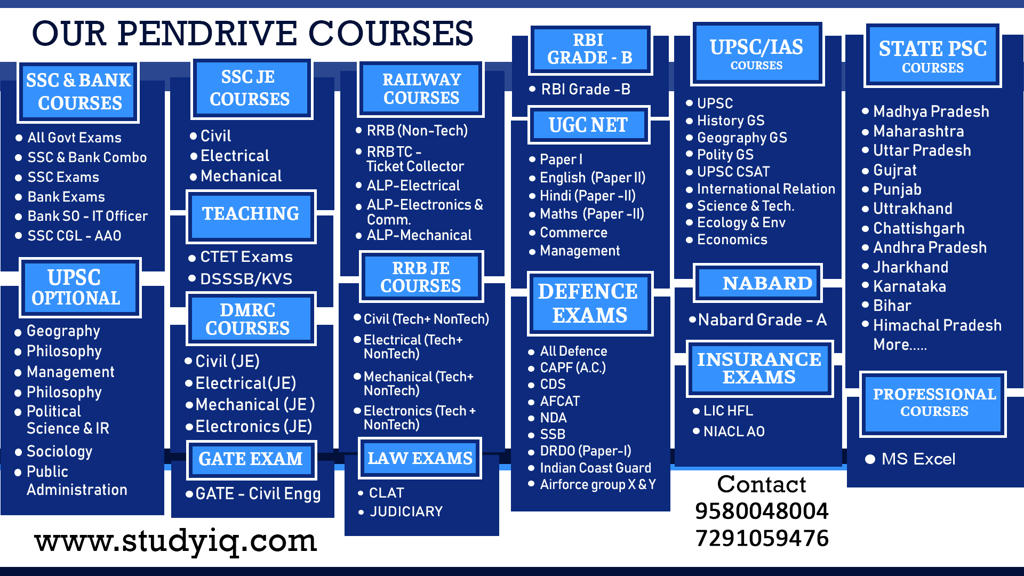Table of Contents
How to overcome economic slowdown?
- Is India’s economic slowdown in sync with the global synchronised slowdown?
- India is still relatively more domestic-driven than external-driven for e.g. China
- IMF, World Bank, WTO and Moody’s: growth rate could be falling dramatically from above 7% to around 5% in 2020.
- Real Estate: witnessed a steady collapse of demand
- rise in NPAs
- high-handedness
- non-delivery by owners/builders
- lack of credit
- incompetency of the RERA
- Fall of real estate demand led to fall of supportive sectors.
- Created a ripple effect on workers’ incomes.
- The fall in incomes led to a fall in demand across India.
- Construction sector: employs a large number of informal labour.
- Most labour belongs to rural areas migrating to cities.
- This is forcing them to return home.
- Already there is a serious rural distress with the agricultural production drying up.
- Oversupply of labour leads to downward pressure on rural wages.
- All this will result in a fall in rural demand.
- The prime indicators of consumption demand in the rural economy are witnessing a decline in demand.
- So, what can be done?
- First, it is essential to revive the rural economy.
- Agricultural activity needs a priority.
- A substantial amount of agricultural investment needs to be done to help farmers produce more and better.
- Rural connectivity: physical infrastructure
- Agricultural land reforms should be initiated in many states.
- Revive real estate, especially construction.
- Most construction activities are in residential or commercial complexes, not so much in physical infrastructure.
- Employment in cities will generate income for them, which will finally be sent to villages, and that is how the rural economy can be revived.
- Consumers lack capital or access to credit.
- The revival of NBFCs may boost the sector and revive the economy.
- The Indian economy can perhaps overcome the slowdown through a huge rural demand stimulus.
States’ capex
- Constrained by a big dip in tax revenue growth.
- State governments curbed their capital expenditure in the first half of the current fiscal.
- A move that could foil the Centre’s bid to aggressively deploy public capex to partly compensate for the delay in the revival of the private investment cycle.
- Given that roughly two-thirds of the general government capex is contributed by the states.
- The slashing of capex by states from the budgeted levels could deepen the economic slowdown.
- Evidently, the states’ tax revenue from GST, which is roughly 60% of their own tax revenue, has taken a hit, but the compensation guaranteed for GST shortfall could offset this.
SEBI’s new guidelines
- Listed companies will get a time of 31 days to disclose a default whether of principal or interest.
- The new rule comes into effect from January 2020.
- An attempt towards openness and better disclosures.
- Portfolio management schemes net worth requirement changed by SEBI
- PMS net worth requirement raised to Rs 5 crore from Rs 2 crore earlier.
- SEBI has given the existing schemes three years to fall in line with the new rules.
- Market experts said the objective of enforcing a higher net worth was to curb malpractices such as mis-selling and allow only credible players to operate.
PSU sales
- Cabinet Committee on Economic Affairs (CCEA) approved the strategic disinvestment of five public sector undertakings (PSUs).
- Bharat Petroleum Corporation (BPCL)
- Shipping Corporation
- Concor
- NEEPCO
- THDC
- Though no time frame has been announced for concluding these strategic sales.
- Idea is to increase the Centre’s disinvestment receipts.
- The Cabinet also allowed National Highways Authority of India (NHAI) to securitise toll receipts for raising funds and gave it unfettered authority to make suitable changes wherever and wherever required in its asset monetisation programme through the toll-operate-transfer (ToT).
Onion Imports
- Cabinet gave its approval to the Food Ministry’s recent decision to import 1.2 lakh tonnes of onions.
- To improve the domestic availability of the key kitchen staple and check prices.
- Retail prices of onions are continuing to rule above Rs 60/kg in the national capital and other consuming centres.
- Besides easing norms for onion import, the government has taken several measures including
- ban on exports
- stock limits on traders
- sale of the commodity stored as buffer, at a subsidised rate
Tap private sector for defence products
- Appointment of a chief of defence staff (CDS) in the Ministry of Defence (MoD).
- Modernisation programme of the services.
- But the plans will fail if India continues to rely heavily on imports.
- We need indigenous production of major equipments.
- Defence minister: Defence Research and Development Organisation (DRDO) to concentrate on high-end, futuristic areas of technology.
- Defence production and R&D will not make the desired leap unless MoD proactively supports the private sector in manufacturing and R&D, and revamps the DRDO.
- In advanced countries, defence production is dominated by a small group of private companies backed by a plethora of small firms.
- They have longterm partnerships with their governments in both R&D and production.
- The governments exercise strong regulatory control over their activities in both manufacturing and export.
- It is time the MoD tapped the entrepreneurial energies of the private sector to bridge the technological gap between India and the advanced military powers.
- HAL struggling to honour the deadlines for delivery of Tejas.
- Today, China challenging the USA in contemporary technologies.
- While the DRDO has done excellent work in some advanced areas, its unfocused organic growth in all directions has rendered it unwieldy.
- Advanced countries have successfully harnessed the energies of the private sector for R&D.
- Downsize DRDO
- DRDO has to be a facilitator for research in other areas.
- The DRDO needs to have the flexibility to hire worldclass talent.
- The final answer may lie in the DRDO being converted into an autonomous research foundation, overseen by an independent board of distinguished scientists and senior members of the three services.
Q1 Name the Chairman of Securities Exchange Board of India
- Ajay Tyagi
- Vikram Limaye
- Vikramajit Sen
- Ashishkumar Chauhan
Q2 Name the first state in India to enact a seperate law on contract farming
- Rajasthan
- Sikkim
- Uttar Pradesh
- Tamil Nadu
Download Free PDF






















 WhatsApp
WhatsApp